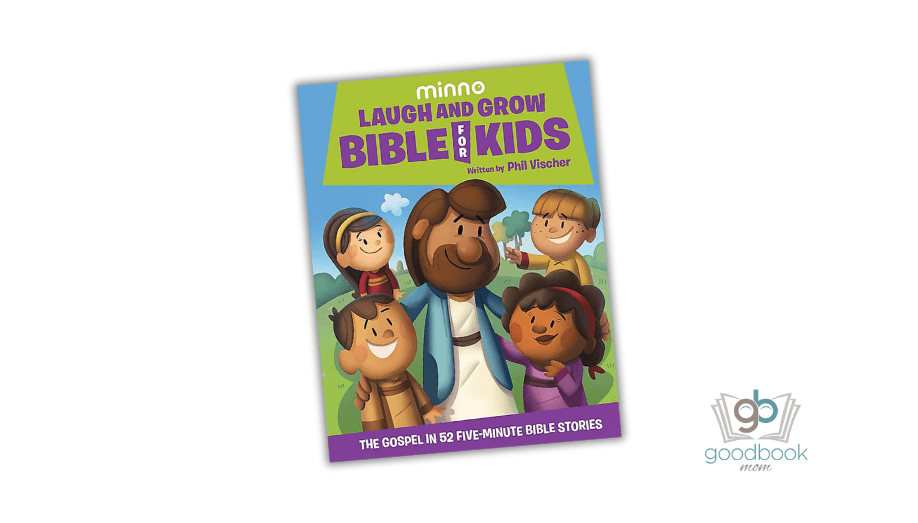
Summary
The tagline for this kid’s Bible is “The Gospel in 52 Five-Minute Bible Stories.” According to the introduction at the beginning of this Bible, Phil Vischer wrote this “to make the entire flow of scripture accessible to kids in a form that encourages fun, intergenerational reading…[and] the truth of the gospel, shaped into bite-sized nuggets that will hold your child’s attention.”
Each “nugget” starts with a retelling of a Bible story. It is followed by a one-page conclusion that has either “Tricky Bits,”, “Everyday Truth,” or “Fun Facts.” Each ends with a “Talk” section that includes questions and a prayer.
Mom Thoughts
 I appreciate how this story Bible tackles tough subjects head-on: animal sacrifice, slavery, distinguishing laws in the Old Testament, redemption, and more. If you’ve ever watched his Buck Denver series, you will find similar wording and themes. I also like how Vischer uses actual theological terms and doesn’t insult children’s intelligence in that sense.
I appreciate how this story Bible tackles tough subjects head-on: animal sacrifice, slavery, distinguishing laws in the Old Testament, redemption, and more. If you’ve ever watched his Buck Denver series, you will find similar wording and themes. I also like how Vischer uses actual theological terms and doesn’t insult children’s intelligence in that sense.
The illustrations are very cartoon-like which some will enjoy and others will not. Much of the wording is straightforward when it is recounting Scripture.
“Goliath was a giant, Philistine warrior. The biggest, tallest, strongest man they had ever seen! The Philistines challenged King Saul. ‘If your strongest man can beat our strongest man, we will be your slaves. But if our strongest man can beat your strongest man, you will be our slaves!’ Someone had to fight Goliath. But who was brave enough? Who was big enough? Who was strong enough?”
I’m not exactly sure of Vischer’s Soteriology, but some of the wording does come across as Arminian.
“[This] represents the clean, new life we receive when we accept God’s gift of salvation.”
There is also a slightly open-theistic-sounding statement in the story of Abraham.
“But God didn’t want Isaac to die. He just wanted to know if Abraham trusted him.” Surely, God already knew this about Abraham.
I do have major concerns about where Vischer’s overall theology has been and continues to head through the past decade. He has embraced Critical Race Theory and the Enneagram as well as some other progressive Christian ideas. While I used to recommend this book, because of this I can no longer recommend it with a clear conscience.

